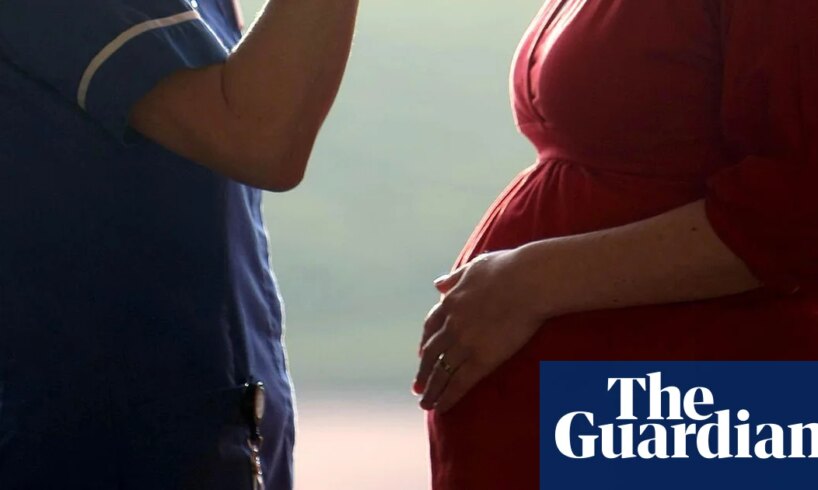
The advice given by coroners in England and Wales to help prevent maternal deaths is not being acted upon, research suggests.
Academics at King’s College London looked at prevention of future deaths (PFD) reports issued by coroners in cases of pregnant women and new mothers who died between 2013 and 2023. They found these reports were not being “systematically used nationally”.
The study, published in the BMJ Gynecology and Obstetrics Clinical Medicine, identified 29 PFDs involving maternal deaths, but found that nearly two-thirds of these reports were ignored.
Two-thirds of deaths occurred in hospitals, with more than half of the women dying after giving birth. The most common causes of death were haemorrhage, complications during early pregnancy and suicide.
Concerns raised by coroners most frequently included failing to provide appropriate treatment or to escalate cases, and lack of training.
NHS organisations, like other professional bodies, are legally required to reply to the coroner within 56 days, but the study found only 38% of PFDs had published responses from the organisations they were sent to.
According to latest figures from the World Health Organization, about 260,000 women died during and after pregnancy and childbirth, even though most of these cases could have been avoided. While the vast majority of maternal deaths occur in lower and middle-income countries, the risk of maternal mortality in wealthier countries is on average 10 per 100,000 live births.
In England, the maternal death rate for 2021/23 was 12.82 per 100,000 births. In June, the health secretary, Wes Streeting, announced an investigation into NHS maternity services in England after a raft of failings across the health system.
Dr Georgia Richards, research fellow at King’s faculty of life sciences and medicine and lead author of the study, said the findings should be used to address failings and accelerate efforts to prevent similar deaths.
“The voices of mothers and pregnant people must be taken seriously. Until then, PFDs should be included as part of the upcoming independent investigation into NHS maternity and neonatal care by Baroness Amos to ensure that the same failures and deaths do not occur again.”
Richard Baish, development manager at Action on Postpartum Psychosis, whose wife Alex died by suicide in 2022 after the birth of their daughter Rosie, said: “Baby blues is used as a throwaway term, but postpartum psychosis can be life-threatening if not dealt with swiftly and appropriately.
“There were no red flags for Alex, which is why it was so tragic her GP didn’t listen to her. Alex was acting strangely and that was the siren for help. If lessons aren’t being learned then it’s likely other women like Alex are slipping through the net.”
A spokesperson from the national maternity and neonatal investigation said: “The aim of the independent investigation is to identify the systemic issues that have led to poor outcomes, including deaths, in maternity and neonatal care across England.
“The lived experiences of women, babies and families are absolutely at the heart of this. The investigation will review relevant prevention of future death reports.”
A Department of Health and Social Care spokesperson said it was “unacceptable” for organisations not to respond promptly to PFDs.
“Too many families have been devastated by serious failings in NHS maternity and neonatal care,’” they said. “That is why we have commissioned an urgent national independent investigation and are setting up a taskforce, chaired by the secretary of state, to root out systemic failures and deliver a plan for real change in maternity and neonatal care across the country.
“We are also taking immediate action to improve safety across maternity and neonatal care, including through advanced monitoring systems and programmes to prevent brain injuries during childbirth.”
Quick GuideContact us about this storyShow
The best public interest journalism relies on first-hand accounts from people in the know.
If you have something to share on this subject, you can contact us confidentially using the following methods.
Secure Messaging in the Guardian app
The Guardian app has a tool to send tips about stories. Messages are end to end encrypted and concealed within the routine activity that every Guardian mobile app performs. This prevents an observer from knowing that you are communicating with us at all, let alone what is being said.
If you don’t already have the Guardian app, download it (iOS/Android) and go to the menu. Select ‘Secure Messaging’.
SecureDrop, instant messengers, email, telephone and post
If you can safely use the Tor network without being observed or monitored, you can send messages and documents to the Guardian via our SecureDrop platform.
Finally, our guide at theguardian.com/tips lists several ways to contact us securely, and discusses the pros and cons of each.
Illustration: Guardian Design / Rich Cousins
Thank you for your feedback.





